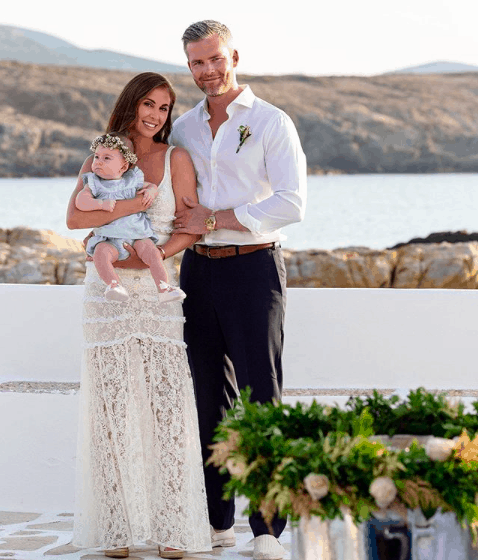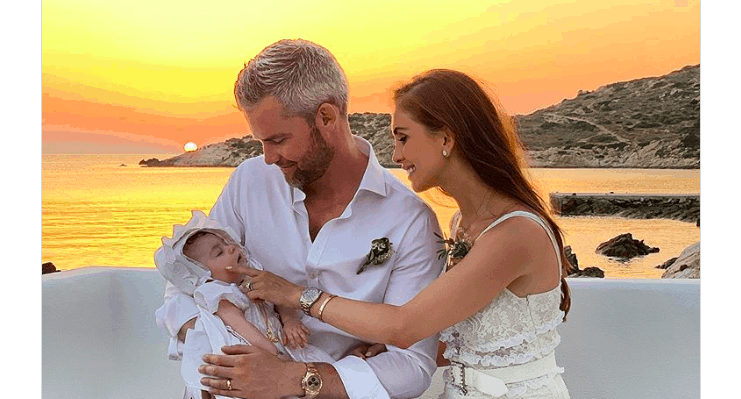
Million Dollar Listing New York broker Ryan Serhant, who is married to Greek American lawyer Emilia Bechrakis, has learned all about Greek baby customs and traditions since the arrival of their baby girl Zena, and viewers worldwide have also been given an insight into Greek life before and after baby, thanks to Emilia and her mother.
The couple welcomed Zena on February 26, and before their daughter's birth, the then-dad-to-be got quite the lesson in Greek pregnancy superstitions from Emilia and her mum. Much like fellow broker Steve Gold explained, it's bad luck to get gifts for the unborn child before his or her birth, as they told Ryan when he brought home a present for unborn baby Zena.
*Watch the video here-
"When a pregnant lady is laying down, you cannot walk over her legs," Emilia explained to Ryan. "They say that, you know, it might have the umbilical cord around the baby's neck," Emilia's mum added.
And you're also meant to give a pregnant woman anything she craves while she is pregnant.
"If she's craving for strawberries and there are none in the house and if you don't give it to her right there, go out and buy it, you may see a strawberry somewhere," Emilia's mum said. "You may see a birthmark in the shape of a strawberry on the baby," Emilia added.
There are also some more traditions and customs such as guessing the gender of the baby. In many villages across Greece, people would guess the gender of the baby by the shape of the pregnant woman’s belly: If the belly was rather “edged” or pointy (versus round), the baby would be a boy.

One of the big ones, which is still followed by many Greek women worldwide is the “40 Days.” This is a custom where both baby and mum stay home for 40 days, until both the newborn and mother go to church and ‘Saradise”, whereby they are given a blessing by the priest. This is meant to keep both baby and mum safe and sound, as the first few weeks are the toughest in motherhood and the baby is still so tiny and fragile.
Many Greeks also do the sign of the cross over a baby's mouth whenever he or she yawns, as a way of praying for the baby’s protection.
https://www.instagram.com/p/Bzs-CrclMqV/
The couple baptised their daughter Zena in Greece this summer on the island of Antiparos and Ryan was also introduced to Greek baptism traditions by his Greek in-laws.
For one, it's customary to not cut the baby’s hair before the baptism, as the priest is the first person to cut a small piece of the baby’s hair three times during the ceremony.

Some people do not even put shoes on the baby until after the baptism, as it's a tradition for the Nouno/Nouna to buy the baby their first pair of shoes.
After the baptism, the baby is not given a bath for 3 days and on the third day, it is a tradition for the baby’s Godparent to give the infant their first bath. The water from the bath should then be used to water flowers or taken to a river/beach/ocean and poured in there.
The baby must also have Holy Communion three times after their baptism, and it is customary for the Godparent to attend the church service with the baby and to be there when the child receives their Communion.
Ryan, who was baptised Greek Orthodox just before he married Emilia, has warmly embraced the Greek culture and spends plenty of time in the Aegean, enjoying the relaxed Greek lifestyle with his family and friends.
*Video and Image Source: Bravo Television


